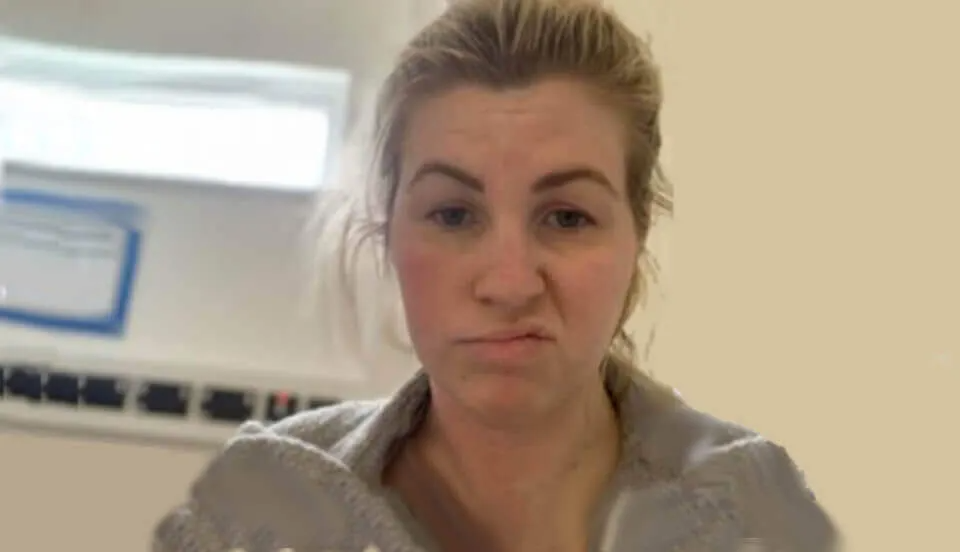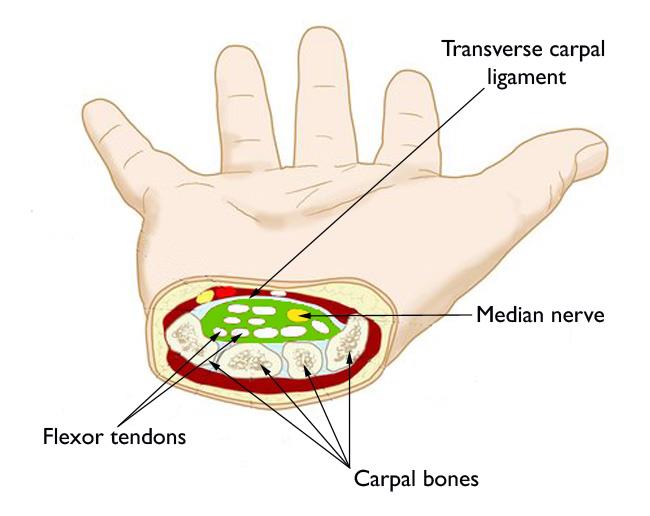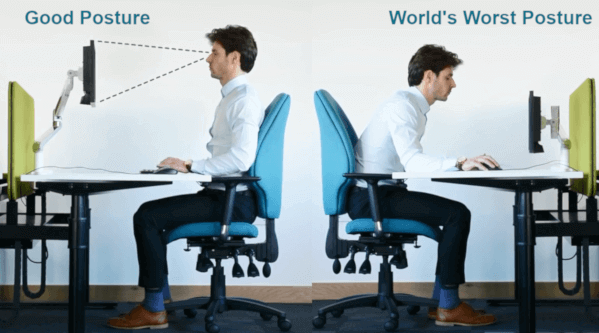How Stress, Anxiety & Carpal Tunnel Syndrome are Related
Table of Contents
1) Early signs of carpal tunnel syndrome'
2) Advanced symptoms
- How carpal tunnel happens
- How stress and anxiety contribute
- Posture: the missing link
- Bottom Line: stress, anxiety & carpal tunnel are connected
- Summary
- FAQs
- About
The mind-body connection
The relationship between stress, anxiety, and carpal tunnel syndrome is
well-documented. Emotional tension doesn’t just affect your mood—it changes how your body functions. When you’re under constant stress, your muscles tighten, your posture shifts, and the delicate balance between your neck, shoulders, and wrists is
disrupted. Over time, these changes can trigger or worsen carpal tunnel syndrome.
Before exploring how stress contributes to the problem, let’s briefly review what
carpal tunnel syndrome actually is.
Carpal tunnel basics
1. Early signs & symptoms
Carpal tunnel syndrome affects the palm and fingers of the hand. In the early stages,
symptoms usually appear at night and may include:
- Tingling or
numbness
in the fingertips or palm
- Achy,
burning , or sharp
pain
- Itchiness or discomfort that disrupts sleep
At first, shaking your hands may relieve the symptoms—but as time goes on, relief becomes temporary.
2. Advanced symptoms
As the condition progresses, symptoms begin appearing during the day. You may experience:
- Shooting “electric shock” sensations in your hands
- Weakness or
loss of grip strength (difficulty holding mugs or tools)
- Clumsiness or dropping objects
- Loss of dexterity, making it hard to button shirts or turn door handles
- Decreased sensitivity to temperature
How carpal tunnel happens
Carpal tunnel syndrome occurs when the
flexor tendons in your wrist become irritated and swollen. These tendons share a narrow passageway—the
carpal tunnel—with the
median nerve, which controls sensation and movement in the fingers.
When swelling builds up in that tight space, the tendons expand and compress the nerve. The result is pain, tingling, weakness, and numbness. Symptoms typically start gradually and worsen as nerve pressure increases.
So, what does this have to do with stress and anxiety? Quite a lot.
How stress and anxiety contribute
Emotional stress changes muscle behavior throughout your body. When you’re anxious or under pressure—especially at work—your shoulders tense, your neck stiffens, and your posture collapses into a hunch or slouch. This disrupts normal muscle
balance and alignment.
That imbalance creates tension that travels down the arms and into the wrists. Over time, this tension alters the natural shape of the carpal tunnel, narrowing the space and increasing pressure on the median nerve.
This means that even though carpal tunnel is a physical disorder,
stress and anxiety can absolutely make it worse—or may even help cause it.
Posture: The missing link
Poor posture caused by stress is one of the most overlooked contributors to carpal tunnel syndrome. When you
hunch
forward at a desk,
slouch
backward in a chair, or
tilt your head to look at a screen, you strain the neck and shoulder muscles. Those
unbalanced forces travel down the arms and affect how tendons glide through the wrist.
Research from the
National Institutes of Health confirms that excessive computer use combined with
poor posture significantly increases the risk of developing carpal tunnel syndrome. Even
small anatomical changes in the wrist can increase pressure on the median nerve.
In short:
stress → poor posture → muscle imbalance → wrist strain → carpal tunnel syndrome.
Bottom Line: stress, anxiety & carpal tunnel are connected
While stress doesn’t directly “cause” carpal tunnel syndrome, it plays a major indirect role. Here’s the chain reaction:
- Emotional stress tightens upper-body muscles, especially in the neck and shoulders.
- Those tensions distort posture and create muscular imbalances.
- The imbalances send abnormal forces down the arm to the wrist.
- The wrist’s anatomy changes just enough to compress the median nerve.
The result is carpal tunnel pain, numbness, and weakness—all fueled by stress-induced muscle tension.
Summary
Emotional stress and anxiety may begin in the mind, but they can end in your hands. Chronic tension in the upper body disturbs muscle balance and posture, which can lead to median nerve compression inside the wrist. In short, managing stress is not just good for your mental health—it’s also essential for protecting your hands and preventing carpal tunnel syndrome.
FAQs
Q: Can emotional stress alone cause carpal tunnel syndrome?
A: Not directly, but stress creates muscle tension and poor posture, which can increase pressure on the wrist’s median nerve. Over time, that tension contributes to the development or worsening of carpal tunnel symptoms.
Q: How can I reduce the effects of stress on my wrists and hands?
A: Regular posture checks, stretching, and relaxation exercises can help release upper-body tension. Combining stress management with targeted wrist therapy provides the best protection against carpal tunnel syndrome.
Q: Does treating my anxiety or stress help relieve carpal tunnel symptoms?
A: Yes. Reducing stress helps normalize muscle balance, easing pressure on the wrists and improving blood flow to the hands. Many patients find that combining emotional wellness strategies with physical therapy leads to faster, more lasting relief.
About






